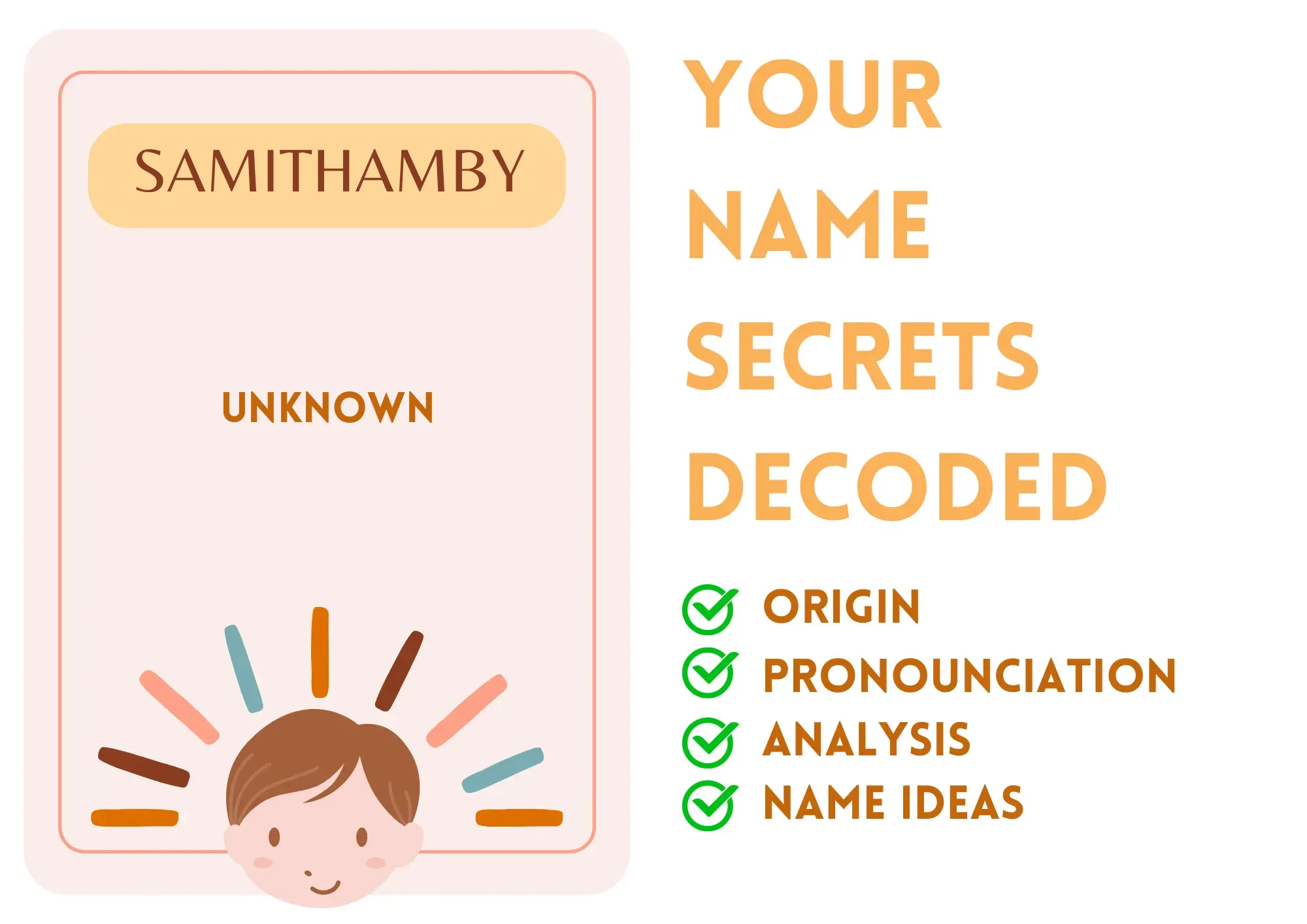
Samithamby
Samithamby is a unique and culturally rich name of Tamil origin, often associated with significant familial connections and respect. It is predominantly a masculine name, though it could potentially be used as unisex in certain contexts. In Tamil culture, the name carries connotations of being a person who is adept and capable, often seen as a guide or leader within the family or community.
Historically, the name embodies values of wisdom, kindness, and support, making it a choice reflecting familial pride. In Tamil culture, names often hold profound emotional connections, and Samithamby is appreciated for its depth.
While the name may not frequently appear in popular media, it is thought of fondly within Tamil-speaking communities and evokes feelings of warmth and belonging.
Basic Information
Gender: Boy
Sounds Like: sah-MEE-tham-bee
Pronunciation Explanation: The emphasis is on the second syllable 'MEE', and the other syllables are pronounced softly.
Summary and Meaning
Meaning: unknown
Origin: The name Samithamby has its roots in Tamil culture and language, reflecting the rich traditions of South India.
Usage: Samithamby is traditionally a masculine name, though some variations may be adopted as unisex.
Name Number (Chaldean)
Name Number (Pythagorean)
Name Constellation (Nakshatra)
Name Zodiac Sign (Rashi)
Popularity (Global Rank)
Overall: 523026
Boys: 72681
Most Popular in
Religious and Cultural Significance
Religion: Hindu
Background: In Hindu culture, particularly within Tamil traditions, Samithamby can reflect familial lineage and virtues.
Cultural Significance: The name often signifies respect and holds emotional ties to familial heritage, with connections to community leadership.
Historical Significance: Historically, the name has been borne by respected individuals within Tamil communities, often associated with wise leaders or individuals known for their supportive roles in families.
Popular Culture
Literature and Mythology: While not widely featured in mainstream literature, the name may appear in Tamil folklore or family narratives signifying strength and wisdom.
Movies and Television: Though rare in international cinema, characters with similar sounding names may embody strong familial ties or cultural significance.
Feelings and Perceptions
Perception: Samithamby is generally perceived positively within its cultural context, symbolizing strength, wisdom, and familial pride.
Positive Feelings: Unique, strong, respectful, familial, kind, wise.
Negative Feelings: Might be seen as complex or unfamiliar to non-Tamil speakers, raising challenges in pronunciation.
Practical Considerations
Ease of Writing and Calling: Samithamby is a straightforward name to pronounce within Tamil-speaking circles, though it may present a challenge to those unfamiliar with Tamil or Indian names.
Common Typos and Misspellings: Samithambi,Samithamby,Samithumby,Samithambe
Common Nicknames: Sam,Thambi,Sami
Samithamby Popularity
Samithamby Usage and Popularity By Country
| Country | Rank (Overall) |
|---|---|
| Sri Lanka | 9193 |
| Qatar | 21780 |
| United Kingdom | 182431 |
| India | 378646 |
Samithamby Usage and Popularity By City
| City | Rank (Overall) |
|---|
Compatibility Analysis
Famous Persons Named Samithamby
No results found for Samithamby.
Related Names
Similar Sounding Names:
Sambath,Samy,Samin,Savit

